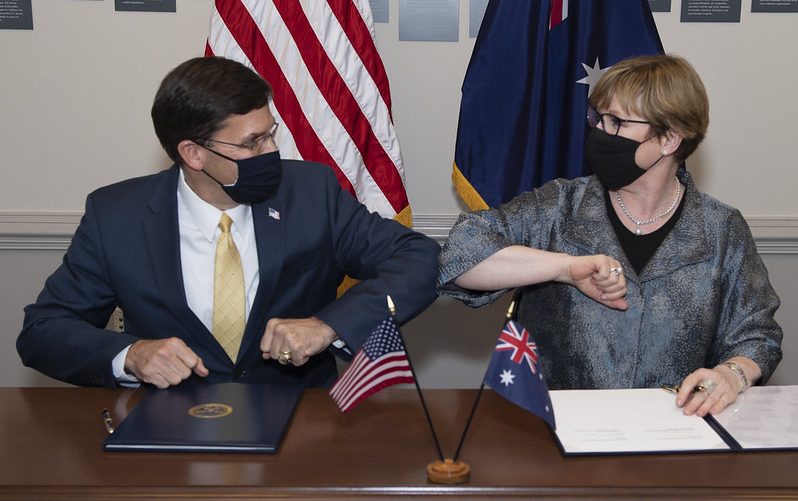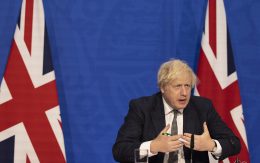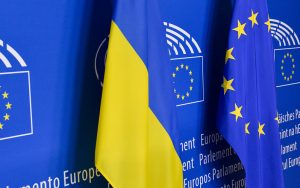Forged under the pressure of the Second World War, the Five Eyes has linked together the United States (US), the United Kingdom (UK), Australia, Canada and New Zealand in unprecedented cooperation on intelligence sharing. During the Second World War, these English-speaking nations informally shared intelligence on Axis powers, which proved critical in turning the course of the war effort. Intelligence collaboration was then formalised following the conclusion of the war, with the threat posed by the Soviet Union to the liberal international order bringing to the fore the importance of more detailed cooperation.
The collapse of the Soviet Union in the early 1990s forced the Western intelligence alliance to examine and reassess its strategic objectives. The growth of transnational terrorist networks targeting national infrastructures and citizens gave the Five Eyes renewed focus, especially after the deadly terrorist attacks on US soil on September 11, 2001. Mobilising surveillance resources against self-radicalised individuals at home, combined with building military intelligence against cross-border terrorist groups in Iraq and Afghanistan, became a top priority. However, the current international security backdrop remains particularly salient in terms of great-power competition from authoritarian powers seeking to challenge the US-led liberal international order. In this article, I contend that for the Five Eyes to strengthen its security resilience, enhanced intelligence cooperation and alliance expansion will be vital to effectively thwart the malign behaviour of rogue powers on the international stage.
Recommendation 1: Deepen intelligence-sharing cooperation
Among the preeminent authoritarian powers seeking to expand their strategic footprint and rupture US alliance systems and force presence are China and Russia. In charting the People’s Republic of China (PRC) course to global dominance, Xi Jinping hopes to transform the People’s Liberation Army (PLA) into a military superpower within the next 30 years, capable of projecting military aggression across the Indo-Pacific and beyond. The PLA has already underscored significant benefits from increased government spending on defence: the military wing of the Chinese Communist Party (CCP) is already ranked among the world’s leading militaries in anti-ship ballistic missiles and artificial intelligence. China’s ground forces have also benefited from the upgrading of new, lighter and more agile tank battalions capable of fighting in rough terrain at high altitudes. China’s People’s Liberation Navy (PLN) has also grown by leaps and bounds with new nuclear submarines, conventional submarines and new warships, bringing the PLN’s inventory to 355 ships, with a projected increase of 420 ships over the next four years. In cyberspace, CCP government-affiliated cyber operators have orchestrated numerous high-profile cyber-attacks against American corporations and foreign governments.
For his part, since his return to power in 2012, Vladimir Putin has focused on re-empowering Russia’s influence over the international order. This began to become explicit with Russia’s annexation of Crimea in 2014 and its covert support for Russian-backed separatists in the Donbas conflict. Putin is equally responsible for the regular build-up of Russian armed forces along the Ukrainian border. The Russian president has also extended his political control over the embattled Belarussian leader Alyaksandr Lukashenka, who now fully assumes his involvement in the Kremlin’s strategic priorities. Over in the Middle East and Africa, Putin has secured long-term naval and air basing arrangements in Syria, gained a foothold in Eastern Libya through the Russian paramilitary organisation Wagner and has established military cooperation agreements with Nigeria and Ethiopia. In the cyber domain, Russia regularly engages in offensive cyberwarfare operations to destabilise the critical infrastructure and supply chains of its adversaries.
As China and Russia seek to upend the rules-based order, the Five Eyes must find ways to respond. Leveraging the intelligence-sharing partnership, however, has faced obstacles in recent months, with New Zealand refraining from participating in subsequent Five Eyes statements condemning China’s human rights abuses in Hong Kong and Xinjiang. The Jacinta Ardern government has again offered a more distinguished position on the forthcoming Chinese Winter Games, leaving the possibility for some New Zealand diplomats to attend. As for the Canadian government of Justin Trudeau, it continues to dither over imposing a ban on Huawei Technologies supplying equipment for Canada’s 5G wireless network. This foundation, coupled with the rapidly changing international security environment, led the US, UK and Australia to form a new security triangle in September called AUKUS – designed to deepen cooperation on a wide range of critical defence capabilities and emerging technology areas that will shape future warfare.
For the Five Eyes to continue to make effective progress and remain relevant, it will be imperative for AUKUS to engage its allies in Ottawa and Wellington to refine their position on China and strengthen their national security culture. Canada and New Zealand are notorious for their limited intelligence maturity compared to their other Five Eyes partners. Addressing these issues will be vital to enhancing the Anglosphere Alliance’s intelligence-sharing capabilities and strengthening the grouping’s security resilience.
Recommendation 2: Alliance expansion
International coalitions aimed at countering China and Russia’s growing power projection should be as broad as possible. For the April Australia-Canada-UK-US joint statements on China, while they demonstrated a high degree of commonality among four like-minded nations against the CCP’s coercive behaviour, the initiative would have carried more weight with the addition of a non-English speaking country. Periodic proposals to graft new members onto the existing Five Eyes agreement have surfaced from time to time.
Over the past decade, Germany has notably expressed its willingness to join the Western intelligence alliance. Currently considered a third-tier party, Germany’s addition would, however, bring many benefits to the Five Eyes. Traditionally Atlanticist, Germany is one of the ten most active countries in space, with an extensive profile in signals intelligence. Since its first successful satellite in 1969, Germany has launched multiple satellites, including for telecommunications, navigation and earth observation. In November 2016, the German Bundesrat passed a law allowing for the expansion of the powers of its federal intelligence service, the Bundesnachrichtendienst (BND). Since then, the BND has been granted the green light to collect signals intelligence from foreign targets abroad and to share this intelligence with other foreign intelligence services. Given its proximity to Russia, tasking Germany with intercepting foreign communications emanating from the Western portion of Russian territory would significantly enhance the alliance’s intelligence capacities.
It remains to be seen, however, whether an Olaf Scholz coalition government would be willing to join an alliance that the CCP paints as an anti-Chinese grouping. Over the years, China has become Germany’s largest trading partner – with German carmakers heavily dependent on the Chinese market. Membership of the Five Eyes would inevitably imply that Germany reviews its economic and technological ties with China. It is furthermore uncertain whether the current German government is willing to compromise on strengthening European strategic autonomy for greater German collaboration with Five Eyes countries. The manifestos of the Social Democrats, the Greens and the Free Democratic Party in the last German federal elections all shared the conviction that the European Union must boost its strategic autonomy on the international stage.
But Joe Biden sees relations with Germany as a top US foreign policy priority, especially after four years of strained relations under Donald Trump. In his first months in office, Biden made several symbolic gestures towards Germany. In July, the US president made former Chancellor Angela Merkel the first European leader to be invited to the White House. The Joe Biden Administration further underlined America’s commitment to Germany’s security by increasing its military presence in the country by 500 troops, adding to a current total of about 35,000. The US president also nominated Karen Donfried as head of European affairs at the State Department and Julianne Smith as ambassador to NATO – two American diplomats fluent in German. More significantly, Annalena Baerbock, co-leader of the Greens and an outspoken China critic, was granted the powerful foreign ministry portfolio. This at least gives the Joe Biden Administration some space for transatlantic cooperation with the new German government.
For its part, Japan sees deeper cooperation with the Five Eyes as crucial for its national security interests. In August 2020, former Japanese Defence Minister Taro Kono signalled that the Shinzō Abe government was eager to deepen ties with the Western intelligence alliance. Present Prime Minister Fumio Kishida has also pledged to keep China’s aggressive behaviour in the Indo-Pacific in check. Japan already heralds high-level cooperation with Five Eyes countries: it is particularly deeply embedded in the Quadrilateral Security Dialogue, which includes Australia and the US. Bilateral military planning between the US and Japan has also been enhanced, with their defence forces conducting joint war games and exercises in July. Any intensification of engagement with Japan, however, would require the island nation to address a number of challenges. This is partly because Japanese intelligence mechanisms are relatively new – Tokyo only introduced a state secrecy law in 2013.
Should the Fumio Kishida government choose to press proactively for inclusion, it must guarantee alliance members that its admission will not expand risks by implementing a more stringent legal framework with stronger protections and a robust counter-intelligence apparatus. A gradual integration process is therefore a more likely and feasible path for Japan. By gradually incorporating a like-minded democratic country through a rigorously controlled accession process, the Five Eyes can gradually build trust and minimise leaks. The Western intelligence alliance would then have a valuable foothold in Northeast Asia and boost the grouping’s geo-intelligence network in the Indo-Pacific.
Sources Aerospace Technology. (2015) The 10 countries most active in space, Aerospace Technology, December 21, 2015. Axe, D. (2021) Yes, China Has More Warships Than The USA. That’s Because Chinese Ships Are Small, Forbes, November 5, 2021. Carvin, S & Juneau, T. (2021) Canada’s exclusion from ‘Three Eyes’ only confirms what was already the case, The Globe and Mail, September 17, 2021. Chazan, G. (2021) Merkel is first European leader invited to Biden’s White House, Financial Times, June 11, 2021. CSIS. (2021) Significant Cyber Incidents, CSIS, Washington : United States. Dizikes, P. (2019) A look at Japan’s evolving intelligence efforts, Massachusetts Institute of Technology, October 9, 2019. Duk-kun, B. (2021) U.S. draft bill seeks possible inclusion of S. Korea in ‘Five Eyes’ intelligence sharing program, Yonhap News Agency, September 2, 2021. Everington, K. (2021) US, Japan running secret war games to prep for China-Taiwan conflict, Taiwan News, July 1, 2021. Franke, U. (2021) Foreign and defence policy in the German election, European Council on Foreign Relations, Berlin: Germany. Gehrke, L. (2021) US to deploy 500 additional troops to Germany this year, Politico, April 13, 2021. Gesley, J. (2016) Germany: Powers of Federal Intelligence Service Expanded, Library of Congress, Law Library of Congress, Washington D.C: United States. Görlach, A. (2021) Görlach Global: Germany’s new foreign minister to break with Merkel’s China policy, DW, December 7, 2021. Global Times. (2021) Five Eyes today’s axis of white supremacy: Global Times editorial, Global Times, February 23, 2021. Hartcher, P. (2021) Japan should join Five Eyes intelligence network, says ambassador, The Sydney Morning Herald, April 21, 2021. Heisler, J. (2021) Snubbed by AUKUS, Canada, New Zealand Are Moving On, VOA, September 30, 2021. Hollingsworth, J. (2021) New Zealand is a Five Eyes outlier on China. It may have to pick a side, CNN, June 4, 2021. Isachenkov, V. (2021) Explainer: What’s behind the conflict in eastern Ukraine?, AP, April 16, 2021. Karadeglija, A. (2021) Possible Huawei ban has telecoms asking Liberals about taxpayer compensation for new equipment, National Post, November 26, 2021. Klaus, U. (2020) Are German carmakers too dependent on China?, DW, October 27, 2020. Knight, B & Hasselbach, C. (2021) Germany: Who is Annalena Baerbock, the prospective new foreign minister?, DW, November 25, 2021 Maizland, L. (2020), China’s Modernizing Military, Council on Foreign Relations, New York: United States. National Post. (2020) NP View: As Ottawa dithers, Canada’s major cellular providers shun Huawei, National Post, June 5, 2020. Nemoto, R. (2021) Countering China is top priority for Japan PM contender Kishida, Nikkei Asia, September 4, 2021. Patman, R. (2021) New Zealand isn’t naive about China – but it doesn’t accept the Aukus worldview, The Guardian, December 10, 2021. People and Politics. (2013), Germany and Five Eyes, DW, December 12, 2013. O’Rourke, R. (2014) China Naval Modernization: Implications for US Navy Capabilities-Background and Issues for Congress. Congressional Research Service, Washington D.C: United States. Osborn, K. (2020) Type 15 Tank: How China Would Wage War All Over Asia, The National Interest, August 11, 2020. Pfluke, C. (2019) A history of the five eyes alliance: possibility for reform and additions: a history of the five eyes alliance: possibility for reform and additions. Comparative Strategy, 38(4), 302-315. Pierini, M. (2021) Russia’s Posture in the Mediterranean: Implications for NATO and Europe, Carnegie Europe, Brussels: Belgium. Pollmann, M. (2014) Japan’s Troubling State Secrets Law Takes Effect, The Diplomat, December 18, 2014. Shelbourne, M. (2021) China Has World’s Largest Navy With 355 Ships and Counting, Says Pentagon, USNI News, November 3, 2021. Smith, E. (2021) Russia is building its military influence in Africa, challenging U.S. and French dominance, CNBC, September 13, 2021. Tucker, E. (2021) Microsoft Exchange hack caused by China, US and allies say, AP, July 20, 2021. Wehrey, F. & Weiss, A.S. (2021). Reassessing Russian Capabilities in the Levant and North Africa. Carnegie Endowment for International Peace. Whitmore, B. (2021) Lukashenka goes all in with Putin, Atlantic Council, August 25, 2021. Wintour, P. (2021) New Zealand’s stance on China has deep implications for the Five Eyes alliance, The Guardian, April 23, 2021. Wolff, J. (2021) Understanding Russia’s Cyber Strategy, Foreign Policy Research Institute, July 6, 2021. Young, J. (2021) China Policy and the Five Eyes, RUSI, 18 June, 2021.








Be First to Comment